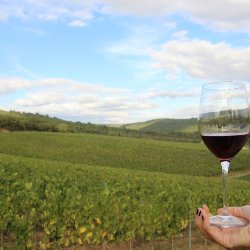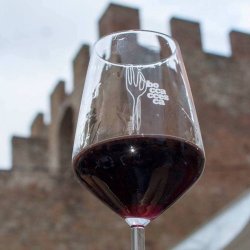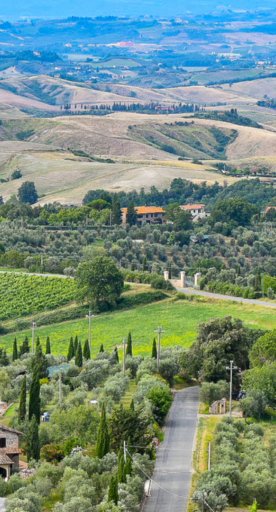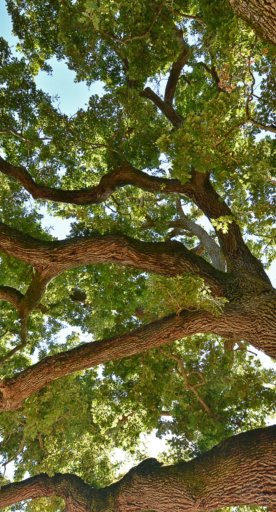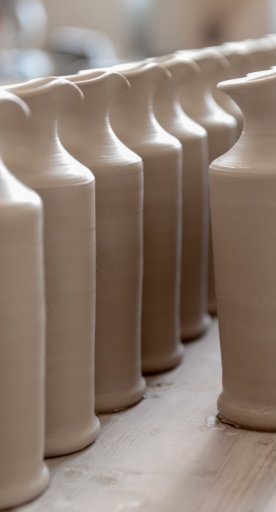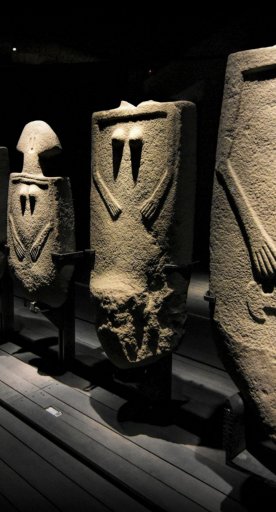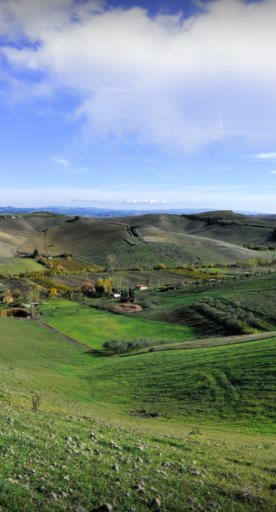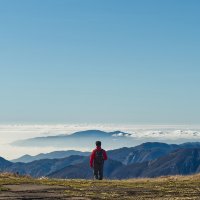

7 ideas for families with children to discover the land of Leonardo and Boccaccio
From Certaldo to Empoli, exploring the homeland of great Italian artists
The Empolese Valdelsa is the land between Certaldo and Empoli, renowned for being the homeland of great Italian artists and innovators such as Leonardo, Boccaccio and Pontormo.
This territory is also a perfect Tuscan destination away from the beaten track: it is full of beautiful landscapes and offers fun activities to do with the family and for children of all ages.
Before starting, a piece of advice: the museums of the Empolese Valdelsa are gathered in a single circuit - the MUDEV - and there is a passpartout ticket (valid for 1 year) which allows to visit 21 museums at a special price.
-
1.Workshops for little geniuses at the Leonardo Museum
-
2.Holograms at Leonardo's Birthplace
-
3.Family portraits at the Medici Villa in Cerreto Guidi
-
4.History and secrets of Montelupo Fiorentino ceramics
-
5."Canottieri" for a day at Limite
-
6.On the funicular to meet Boccaccio in Certaldo
-
7.A garden with a thousands of succulent plants in Vico d'Elsa
Workshops for little geniuses at the Leonardo Museum
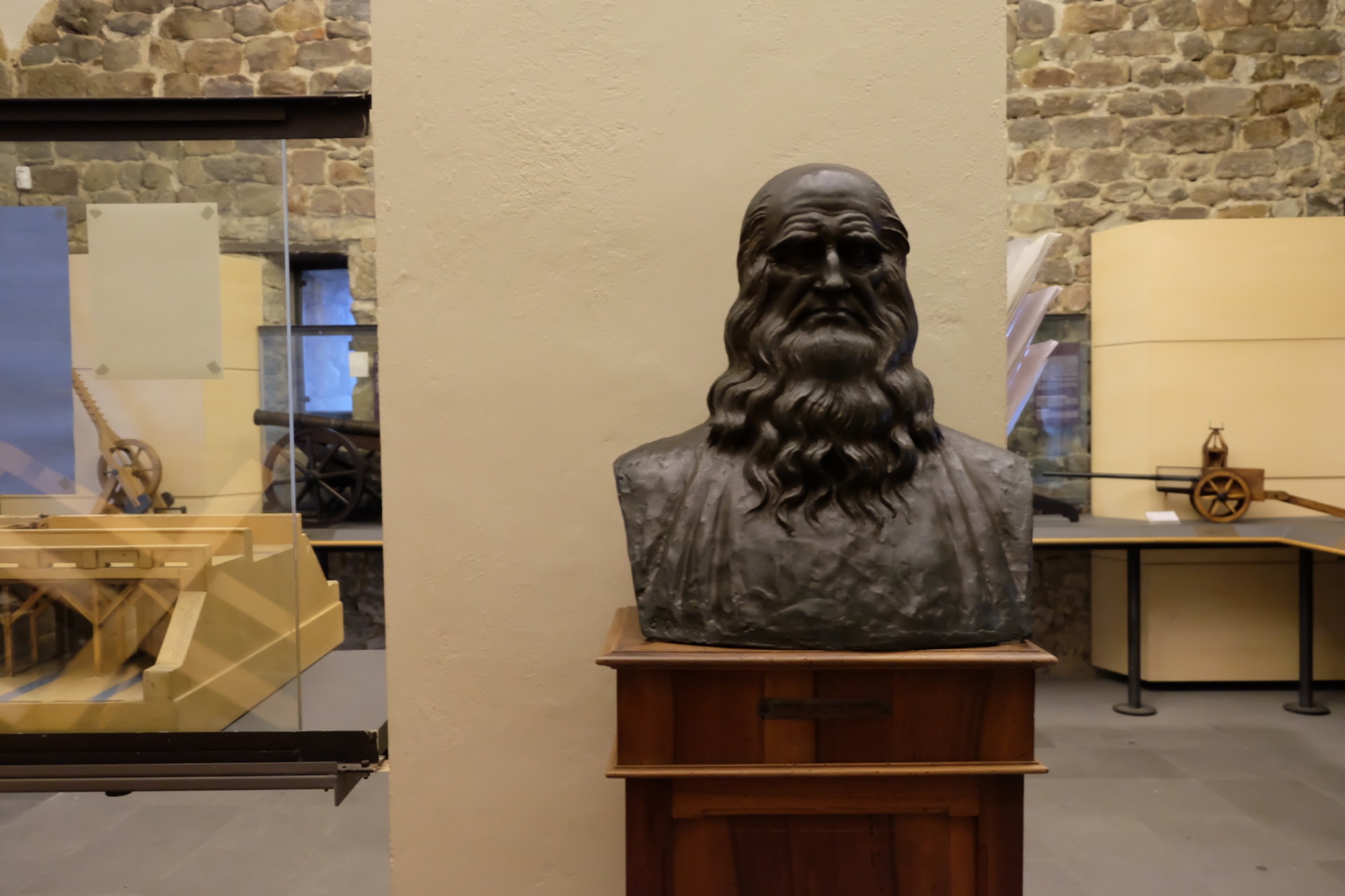
Inventor, artist, architect, writer, scholar and much more: Leonardo da Vinci rimes with "genius" and here, in his hometown, is the museum dedicated to him. The Museo Leonardiano (Leonardo Museum) exhibits one of the largest and most original collections of models and machines invented by Leonardo, together with documents and sketches.
To allow all family members to fully appreciate the visit there are guided itineraries, as well as workshops organized throughout the year.
Holograms at Leonardo's Birthplace

From the center of Vinci, along the Strada Verde (green road), you arrive at Anchiano, where the birthplkace of Leonardo is located. The Strada Verde is about 3 kilometers long and is an easy and pleasant walk in the Tuscan countryside, surrounded by olive trees and splendid views over the city.
The visit will also capture the attention of the little ones thanks to three-dimensional narrations, holograms of Leonardo and the interactive multimedia application "Leonardo Touch" which allows to interact with the drawings and paintings and discover every detail.
Family portraits at the Medici Villa in Cerreto Guidi
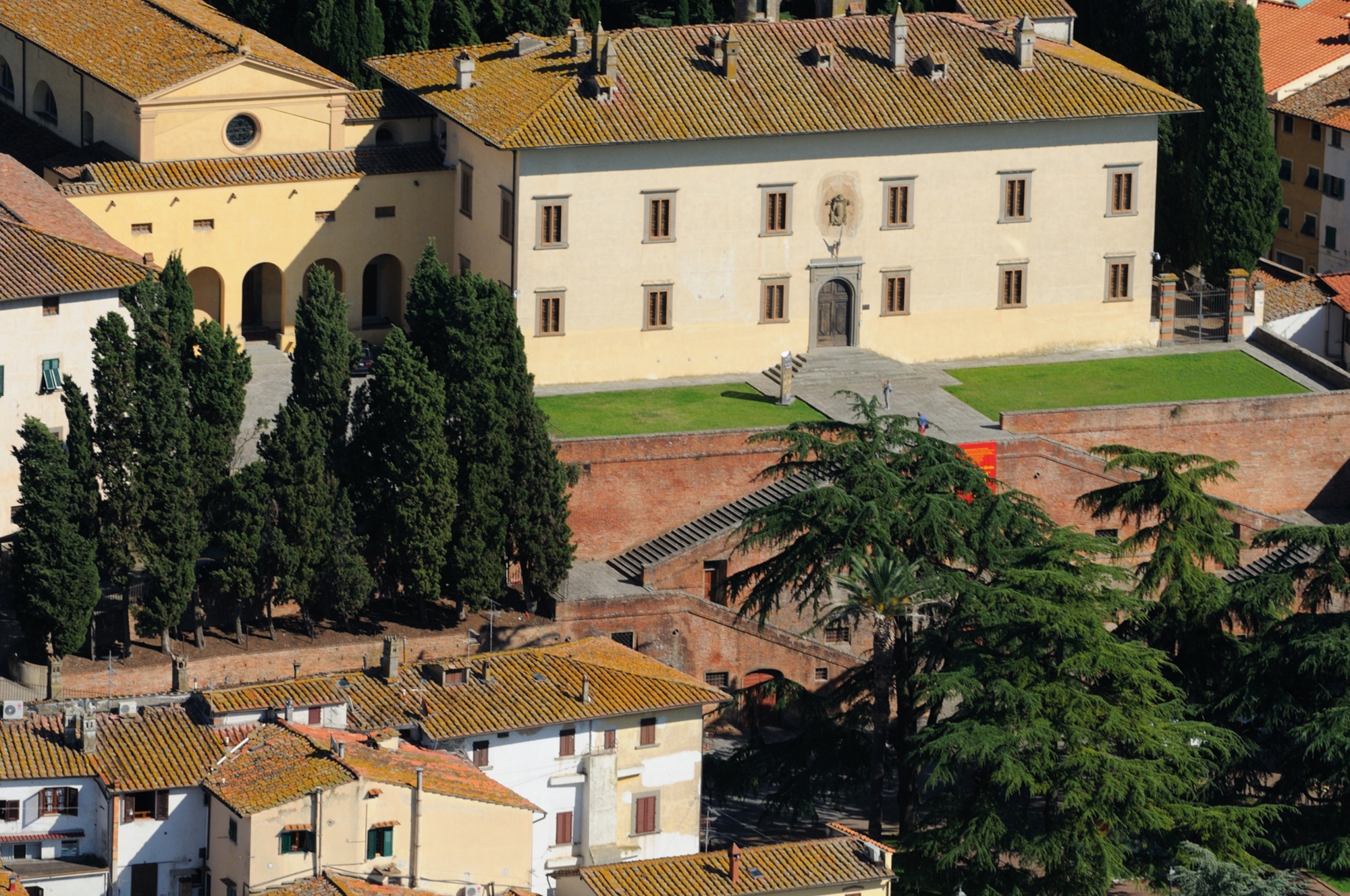
The Medici family loved this area and in 1556 Cosimo I commissioned the construction of the Medici Villa of Cerreto Guidi, to be used as his hunting lodge.
The villa, declared a World Heritage Site by Unesco together with the other Medici residences in Tuscany, preserves family portraits and valuable furniture from different periods and origins, as well as hosting the Historical Museum of Hunting and the Territory: a large collection of hunting weapons and hunting-related object from the 15th to 19th centuries.
History and secrets of Montelupo Fiorentino ceramics

The Museum of Ceramics in Montelupo Fiorentino, with its over 1,000 majolica objects from the end of the 13th to the 18th century, offers a real journey to discover the great artisan history of this territory, for centuries one of the most important centers for pottery in Italy.
The museum itinerary is divided into eight rooms: the medieval and Renaissance canteen, the excavations, the workshop, collecting, exports, the clients, the pharmacy and the animals and flowers room.
The Museum also includes an itinerary dedicated to children, with many activities and workshops.
"Canottieri" for a day at Limite

The city of Limite takes its name from its strategic position on the edge of the Florence area, in a stretch of the Arno course with a conformation such as to favor the work of the Navicellai (shipwrights), appointed to transport goods to and from the sea; here was one of the most important ports on the Arno river since Etruscan times, and the first rowing club in Italy was born here in 1861.
The Museo Remiero in Limite sull'Arno (former shipbuilding and rowing museum) houses a vast collection of ship models, documents, vintage photos, work tools for building boats and navicelli.
The museum is only open upon request.
On the funicular to meet Boccaccio in Certaldo

The town of Certaldo is made up of two parts: the ancient castle, on the top of the hill, enclosed within enormous walls which have preserved its original medieval appearance, and the modern area, below. The two centers are connected by a funicular.
One of the tallest towers in the village is Boccaccio's house, a museum and archive dedicated to the illustrious poet, born in Certaldo in 1313. Inside there are furniture, furnishings and display panels; in the Stanza del Poeta (the poet room) a fresco depicts Boccaccio at his work table.
From the windows of the house you can enjoy a breathtaking view.
A garden with a thousands of succulent plants in Vico d'Elsa

In the small village of Vico d'Elsa is the Giardino SottoVico, a unique botanical garden, with a collection of over 3,000 specimens of succulents plants, including particularly rare ones, from South and Central America and Africa.
In addition to two large greenhouses, the garden houses a Path of the Senses designed to stimulate the five senses through plants, a plant for educational demonstration of the water cycle, a playground and special learning areas, both for children and for adults.
Social solidarity projects are carried out in the garden, with therapeutic and educational-training activities.




